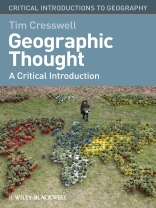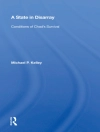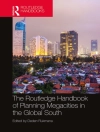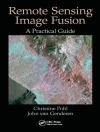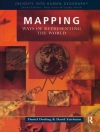This engaging and accessible introduction to geographic thought explores the major thinkers and key theoretical developments in the field of human geography.
* Covers the complete range of the development of theoretical knowledge of the field, from ancient geography to contemporary non-representational theory
* Presents theories in an accessible manner through the author’s engaging writing style
* Examines the influence of Darwin and Marx, the emergence of anarchist geographies...
Innehållsförteckning
Preface viii
1 Introduction 1
2 Early Geographies 14
3 The Emergence of Modern Geography 35
4 Thinking About Regions 58
5 Spatial Science and the Quantitat...
Om författaren
Tim Cresswell is Professor of Human Geography at Royal Holloway, University of London. His books include Place: A Short Introduction (2004) and On the Move: Mobility ...
